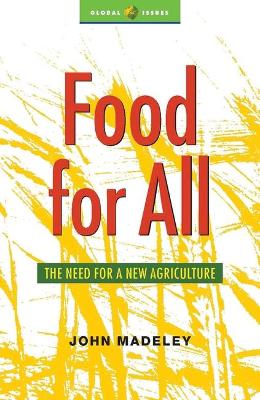Global Issues
1 total work
What kind of agriculture do we need to feed the world? World leaders have committed themselves to halving hunger by the year 2015 as a first step towards food for all. But is this an achievable target?
John Madeley's new book shows we already have the experience on which to base a new approach to agricultural production and feeding the world's whole population. Millions need better access to the land from which the market forced them, and a more equitable income distribution so that the poor can afford the available food. This is part of the solution. But the other part is an innovative, multi-faceted move away from a monoculture production system dependent on ever more tractors and fossil fuels, dangerous chemicals, and hybrid seeds monopolized by a handful of giant corporations.
Instead, he shows it is feasible to look to the spread of a low-external input approach, a reintegration of traditional farming techniques, new farming practices like organic agriculture and permaculture, and a range of 'green' technologies which can all play a role in bringing world agriculture back to a path which offers a viable livelihood to farmers, food for the hungry, and all without harming the environment.
John Madeley's new book shows we already have the experience on which to base a new approach to agricultural production and feeding the world's whole population. Millions need better access to the land from which the market forced them, and a more equitable income distribution so that the poor can afford the available food. This is part of the solution. But the other part is an innovative, multi-faceted move away from a monoculture production system dependent on ever more tractors and fossil fuels, dangerous chemicals, and hybrid seeds monopolized by a handful of giant corporations.
Instead, he shows it is feasible to look to the spread of a low-external input approach, a reintegration of traditional farming techniques, new farming practices like organic agriculture and permaculture, and a range of 'green' technologies which can all play a role in bringing world agriculture back to a path which offers a viable livelihood to farmers, food for the hungry, and all without harming the environment.
